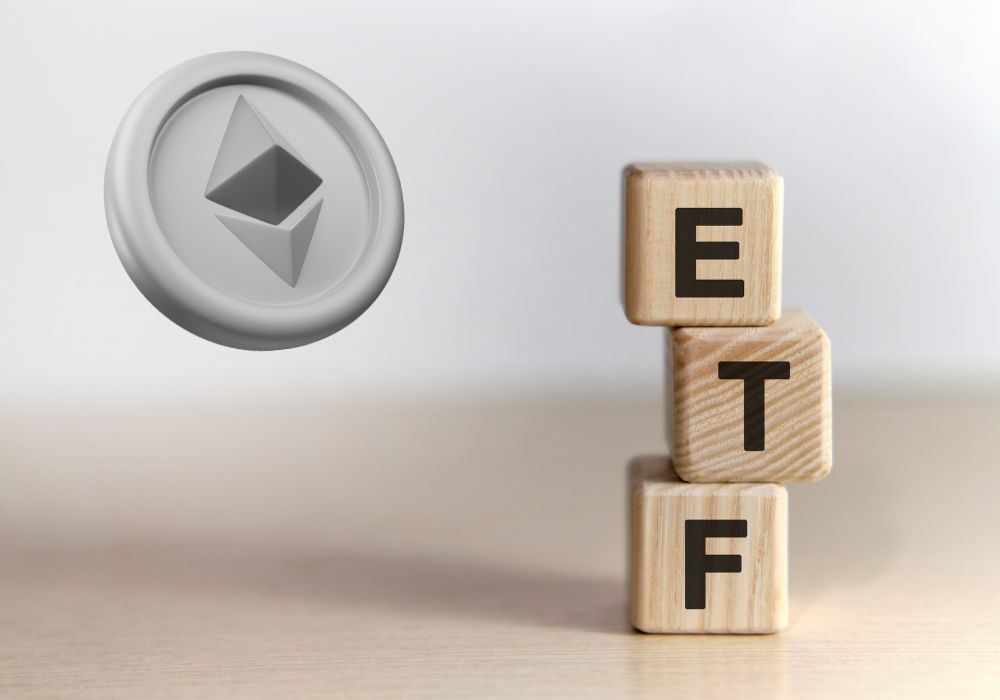
September 24, 2025 — In a major regulatory move, according to reports, the U.S. Securities and Exchange Commission (SEC) has approved changes that allow Grayscale’s Ethereum Trust and Ethereum Mini Trust ETFs to be listed under NYSE Arca’s generic listing Rule 8.201-E, rather than relying on bespoke, case-by-case approvals. This shift means both Ethereum funds can now trade more freely and with lower administrative burden, aligning them with broader generic standards for commodity-based trust shares. The transition is effective immediately, eliminating the need for separate SEC approval for each iteration of the product.
What Is Grayscale & What Is an ETF?
Grayscale Investments is one of the world’s leading digital asset managers and has long been an influential voice in transforming crypto investment products. It operates several “Trust” products, most famously the Grayscale Bitcoin Trust (GBTC), that allow investors exposure to underlying crypto assets without direct ownership of those assets.
An ETF (Exchange-Traded Fund) is a regulated investment product that trades on stock exchanges, much like a stock. ETFs hold underlying assets (or baskets of assets) and allow investors to gain exposure to those assets without owning them directly. Because ETFs are regulated, they offer transparency, liquidity, and easier access, especially for institutional and retail investors.
Grayscale’s Ethereum Trusts have historically operated under more customized SEC approvals. With the new generic listing framework, they can operate more like traditional commodity ETFs, with standardized oversight and faster processes.
Why This is a Big Deal?
Faster, Less Bureaucratic Listings
By approving generic standards, the SEC is lowering regulatory friction. Ethereum-based ETFs can now list and trade without going through a lengthy case-by-case process. That means less regulatory delay and faster time to market for future crypto ETFs.
Regulatory Clarity & Credibility
This move demonstrates the SEC’s willingness to bring cryptocurrency products under the same regulatory umbrella as traditional commodity ETFs. It helps clarify expectations for compliance, reporting, and oversight.
Competitive Pressure & Innovation
With Grayscale now operating under this streamlined framework, other issuers are likely to push for similar transitions. Assets like XRP, Solana, and other altcoins may see faster paths to ETF structures under the same rules.
Efficiency Gains & Cost Savings
Standardized listing requirements reduce administrative and legal costs for both exchanges and issuers. That could translate into more products, lower fees, and more innovation in crypto-linked ETFs.
At Hotcoin, we perceive this development as a landmark, perhaps one of the most important regulatory pivots in recent years, because it represents both a tremendous opportunity and a significant challenge. Grayscale’s brand plays a pivotal role here: with its credibility, institutional reputation, and years of experience navigating the SEC’s complex terrain, it has a clear head start under the new system, though it won’t stand alone for long as new challengers are sure to emerge quickly. This shift is a true “gate-opening” moment, functioning as a proof of concept that, if Ethereum ETFs can successfully operate under generic standards, we may soon see a flood of new crypto ETFs enter the market, ranging from Solana and XRP to other promising assets.
In this race, speed is critical. First movers will gain an undeniable edge, while those who hesitate risk missing the wave altogether, which is why having ETF proposals, compliance documents, custody frameworks, and exchange listings lined up in advance is now more important than ever. At the same time, not every crypto will qualify for this pathway; products must still meet clear requirements, such as having a regulated futures market or operating as a commodity-based trust share, meaning assets without sufficient infrastructure or regulatory precedent may still face extended review periods. Meanwhile, volatility and speculation are almost inevitable as markets are likely to react aggressively to news, rumors, capital flows, and ETF filings, with some speculators piling in prematurely on expectations alone. However, in the long run, fundamentals and regulatory clarity will be what truly sustains success.
What to Watch Going Forward
- Will Grayscale apply the same generic transition to other trusts or funds it manages (e.g. Cardano, others)?
- Which altcoin issuers will leap into ETF filings next under the generic standard?
- How will pricing, fees, and product structure evolve under increased competition?
- Will regulatory oversight keep pace? For example, content disclosures, fraud prevention, or operational audits may become critical differentiators.
- How investors react: Will capital flock into Ethereum, broaden to altcoins, or concentrate in perceived “safe” crypto ETFs like Bitcoin and Ethereum?
The SEC’s approval of Grayscale’s Ethereum ETFs under a generic listing framework isn’t just a tweak, it’s a structural shift. It blends legal clarity, speed, and transparency, reducing previous barriers that held crypto ETFs back. For institutional and retail investors alike, it opens more accessible windows into crypto exposure. For issuers and platforms, it’s a call to action: step up your compliance, product readiness, and competitive positioning.
Stay tuned, things are heating up.
Hotcoin Official Site: https://www.hotcoin.com
Hotcoin Twitter: https://x.com/HotcoinGlobal
Hotcoin Telegram: https://t.me/HotcoinEX
Hotcoin Chinese Twitter: https://x.com/hotcoinzh
Hotcoin Chinese Community: https://t.me/hotcoinglobalcn
Hotcoin YouTube: https://www.youtube.com/@hotcoinglobal
